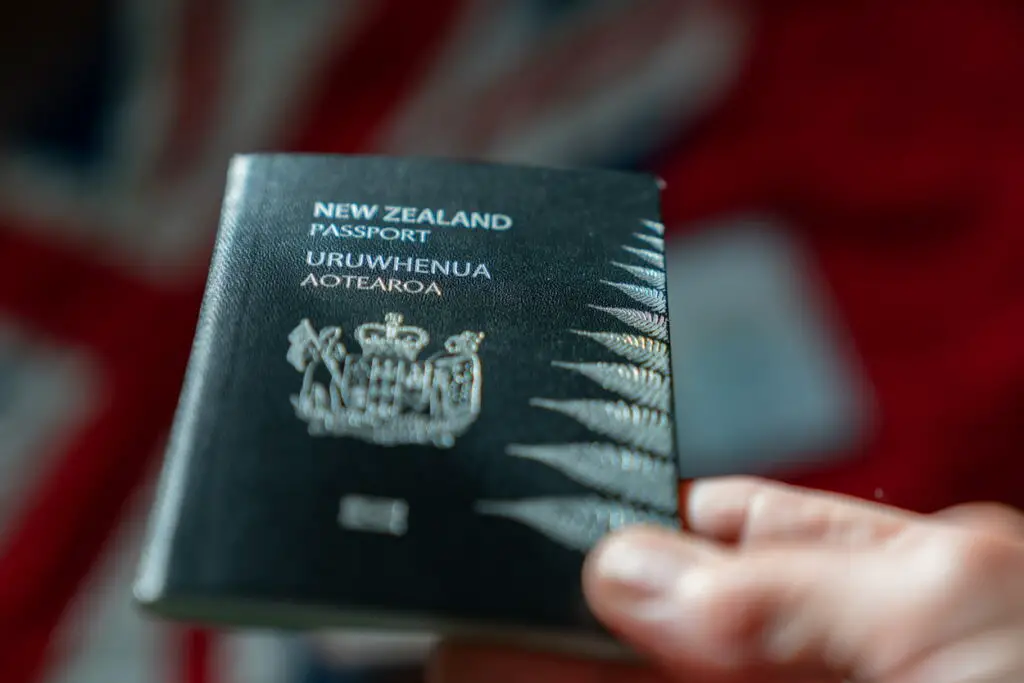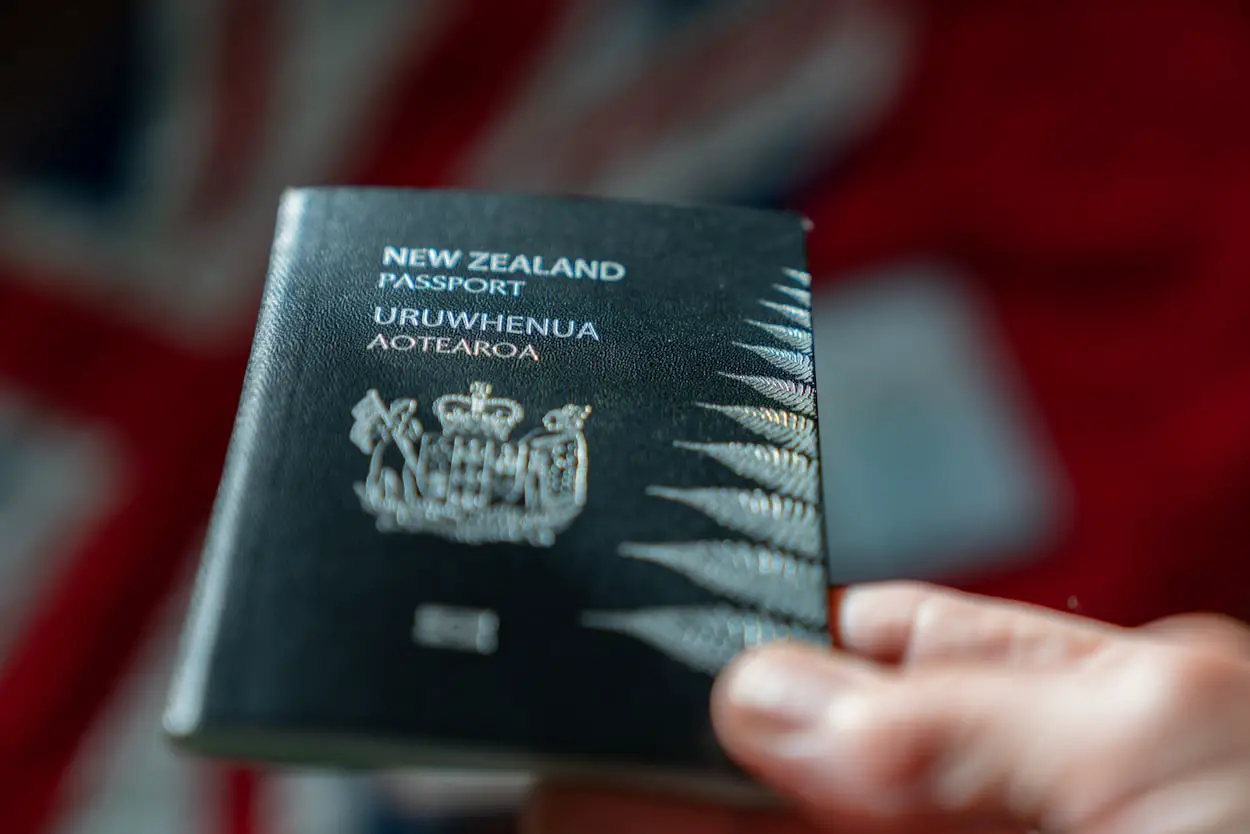Moving To New Zealand with Autism in 2024

New Zealand, along with many other countries, has a strict set of rules when it comes to health requirements and policies for immigrants.
Due to the law, people diagnosed with severe autism, especially if significant support is required, can’t immigrate to New Zealand. This is because the country tries to prevent the potential burden which disabled and seriously ill people can cause to the healthcare system.
As of April 2023, about 1-2% of the New Zealand population has autism. Australia and New Zealand are well-known countries with rigid immigration policies, including health criteria. Some might say it’s discrimination, some consider it as a good way to prevent issues within the country.
Migrants with disabilities will have a difficult time getting a visa both in New Zealand and Australia. Several diagnoses can prohibit you or your child from moving to New Zealand, including blindness, deafness, and various mental problems. The list is extensive.
Can you move with autism to New Zealand?
So, what do you need to know about the immigration to New Zealand with Autism? The final decision lies in the hands of Immigration New Zealand and the form of autism you have.
If it’s less severe, the government might grant an applicant a visa. It varies on the case by case basis. Generally, people with the highest levels of autism have minimal chances of moving to New Zealand.
Therefore, Immigration New Zealand might deny visa or residency to individuals with severe developmental disorders or severe cognitive impairments where significant support is required. This includes:
- physical disability
- intellectual disability
- autistic spectrum disorders
- brain injury
You can read more on the “acceptable standard of health” determined by Immigration New Zealand and what goes into this. If a person doesn’t meet the “acceptable standard of health,” they may not receive a visa or a residency.
When reviewing a visa application, New Zealand measures the amount that an immigrant can cause to the country’s healthcare. You shouldn’t incur more than $81,000 within a period of 5 years in healthcare costs to New Zealand’s budget.
Keep in mind that having private health insurance won’t change the situation.
There were several cases (link to news article) when candidates who had received a work visa for New Zealand weren’t able to move here with their children diagnosed with autism.
There are 3 levels of autism, and each of them has different symptoms and care required. Someone with a Level 1 has a good chance of moving to New Zealand because they are capable of doing many jobs but might struggle to communicate with others.
On the other hand, it will be a challenge for someone with Levels 2 and 3 to move abroad and be accepted by Immigration New Zealand.
That said, the New Zealand government has recently almost doubled the medical costs threshold; however, the list of health conditions remains the same.
Don’t be discouraged if you or your family member can’t move to New Zealand because of health conditions. There are plenty of other amazing countries that have more flexible policies and welcome almost everyone, read on to learn more!
Moving to New Zealand with autistic children
Unfortunately, New Zealand doesn’t grant a visa to children diagnosed with autism even if their parents have successfully received their visas.
This is a common case, but some exceptions are possible! Consequently, it depends on the particular situation and the autism level.
The reason why migrants with disabled or special children are often denied visas is due to the potential cost of healthcare and special education that they require. It can be a significant burden for the system and resources that the country has.
Getting a NZ visitor visa with autism
Similarly to the residency, it can be challenging or almost impossible to get a visitor visa to New Zealand with autism.
There were several instances when people were denied a visa when diagnosed with autism. This is because when applying for a visa, you also need to meet health conditions; although a medical examination or chest x-ray isn’t always required, you still need to be honest.
If Immigration New Zealand assumes that a person might cause over $81,000 (2023) in spending for NZ healthcare, they might deny the visa.
Can you move to New Zealand with ADHD?
Attention-deficit/hyperactivity disorder is a very common chronic condition. In fact, ADHD is one of the most common mental conditions in the world. 6 million children in the US are diagnosed. In New Zealand, every 20th person has ADHD.
Generally, you can move to New Zealand with ADHD mainly because ADHD isn’t exactly a disability; it’s a condition. Immigration New Zealand doesn’t allow people with severe disabilities and risks to the healthcare system to immigrate to the country. ADHD isn’t considered as such, but it’s always a case-by-case situation.
In some cases, a report or statement from the specialist might be required. So Immigration New Zealand can judge the condition and the needs of the applicant. For instance, do they need special education or care?
To get special medication after you relocate to New Zealand, you should obtain a valid Special Authority Number. Only with this number can you be prescribed medication for ADHD.
New Zealand health policies for immigration
Before you apply for your visa or residency, you must be aware of the current health policies of New Zealand. The rules are designed to generally welcome healthy individuals and reduce or prohibit the entrance of severely ill or disabled people.
This might sound harsh, but it’s the reality. New Zealand, along with some other countries, doesn’t grant visas and residency to people with disabilities and severe diseases.
Below are the health criteria that Immigration New Zealand considers before approving your application; if you meet one of the following, a visa may be denied:
- You are a risk to public health
- You are going to add high costs to, or demands on, New Zealand’s health services
- You are going to qualify for Ongoing Resourcing Scheme (ORS) funding
Ongoing Resource Scheme - Your health may stop you from working or studying if this is what the visa is for.
Here is the complete list of health conditions that will likely result in a denial from Immigration NZ (be aware that it applies not only to the main applicant but also to dependants included in the application):
- Hepatitis B-surface antigen positive and meeting criteria for anti-viral treatment in New Zealand.
- Hepatitis C-RNA positive and meeting criteria for anti-viral treatment in New Zealand.
- Malignancies of organs, skin (such as melanoma) and haematopoietic tissue, including past history, or currently under treatment. Exceptions are:
- treated minor skin malignancies
- malignancies where the interval since treatment is such that the probability of recurrence is below 10%.
- Requirement for organ transplants (with the exclusion of corneal grafts), or following organ transplant when immune suppression is required (with the exclusion of corneal grafts).
- Severe, chronic or progressive renal or hepatic disorders.
- Musculoskeletal diseases or disorders such as osteoarthritis with a high probability of surgery in the next 5 years.
- Severe, chronic or progressive neurological disorders, including but not limited to:
- any dementia including Alzheimer’s disease
- poorly controlled epilepsy
- complex seizure disorder
- cerebrovascular disease
- cerebral palsy
- paraplegia, quadriplegia
- poliomyelitis
- Parkinson’s disease
- motor neurone disease, Huntington’s disease, muscular dystrophy
- prion disease
- relapsing or progressive multiple sclerosis or both.
- Cardiac diseases, including but not limited to:
- severe ischaemic heart disease
- cardiomyopathy
- valve disease with a high probability of surgical and or other procedural intervention in the next 5 years
- aortic aneurysm with a high probability of surgical or other procedural intervention or both in the next 5 years.
- Chronic respiratory disease, including but not limited to:
- severe or progressive restrictive (including interstitial) lung disease or both
- severe or progressive obstructive lung disease or both
- cystic fibrosis.
- Significant or disabling hereditary disorders, including but not exclusive to:
- hereditary anaemias and coagulation disorders
- primary immunodeficiencies
- Gaucher’s disease.
- Severe autoimmune disease may require treatment in New Zealand with immune-suppressant medications other than Prednisone, Methotrexate, Azathioprine or Salazopyrin.
- Severe (71-90 decibels) hearing loss or profound bilateral sensori-neural hearing loss after the best possible correction at the country of origin, where significant support is required, including cochlear implants.
- Severe vision impairment with visual acuity of 6/36 or beyond after best possible correction at country of origin, or a loss restricting the field of vision to 15-20 degrees where significant support is required.
- Severe developmental disorders or severe cognitive impairments where significant support is required, including but not exclusive to:
- physical disability
- intellectual disability
- autistic spectrum disorders
- brain injury.
- Major psychiatric illness or addiction or both, including any psychiatric condition that has required hospitalisation or significant support or both.
- A history, diagnostic findings or treatment for MDR-TB or XDR-TB, unless cleared by a New Zealand Respiratory or Infectious Diseases specialist upon review of any file or applicant according to the New Zealand Guidelines for Tuberculosis Treatment.
In addition, Immigration New Zealand may also decline your visa application if your healthcare expenses within the country are likely to be more than $81,000 and $41,000 if you applied for a visa before 4 September 2022.
Besides, they may don’t approve your temporary visa application if, during your stay, you are likely to need the following:
- Hospitalization
- Residential care
- High-cost pharmaceuticals
- High-cost disability services
Moreover, when Immigration New Zealand decides on your visa, they generally don’t take into account:
- That you might have to pay for health services, pharmaceuticals, or residential care
- That you have private health insurance, or can access the private health system
- That your family, friends, or a charitable organization can care for you
Source: Immigration New Zealand.
Consequently, anyone applying for a New Zealand visa must have an “acceptable standard of health” for several reasons, but most notably to ensure that they will not impose high costs or demand on health or special education services.
For that reason, when you are applying for a visa or a residency, you must prove your health conditions which is done by completing medical examinations and chest x-ray.
For chest x-ray or medical examinations, you need to use a special panel physician, they will send your medical results directly to Immigration NZ via the eMedical system.
You will find the list of approved physicians and radiologists on the INZ website. I did this procedure in New Zealand, where you can find an approved practice almost in any town.
If your medical results cause some doubts of the medical assessor, INZ might either require more medical information, see if you are eligible for a medical waiver assessment as you have not met the acceptable standard of health criteria, or decline your visa application.
If everything is fine and you meet the standards, they won’t inform you but will rather continue processing your application.
Countries you can immigrate to with autism
Lastly, New Zealand isn’t the only country you can relocate to. There are many other places that offer an incredible quality of life but also grant visas and residency to people with disabilities, e.g., autism.
Many other countries with public healthcare offer chances to foreigners, even with serious health issues. For instance, countries in the EU are legally obligated to provide adequate healthcare for everyone with disabilities, including migrants.
In 2018, Canada also opened its borders to immigrants with autism after the government discovered that the potential costs constituted just 0.1% of all public health spending.
The list of countries is extensive, but if you are looking for a developed state with rich opportunities for foreigners, look into Canada and most EU members.





![New Zealand vs UK: Which Country Is Better For Living? [2024]](https://simplenewzealand.com/wp-content/uploads/2023/01/andreas-sjovall-ZZUPu8ARD8U-unsplash-768x432.jpg)

